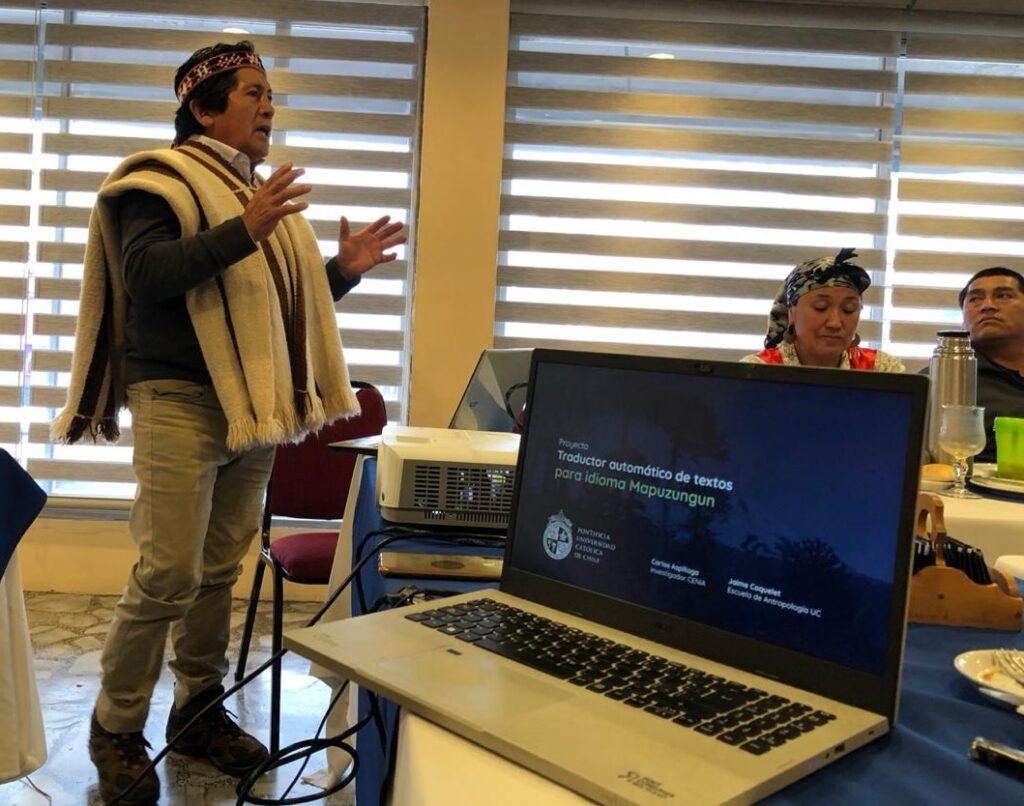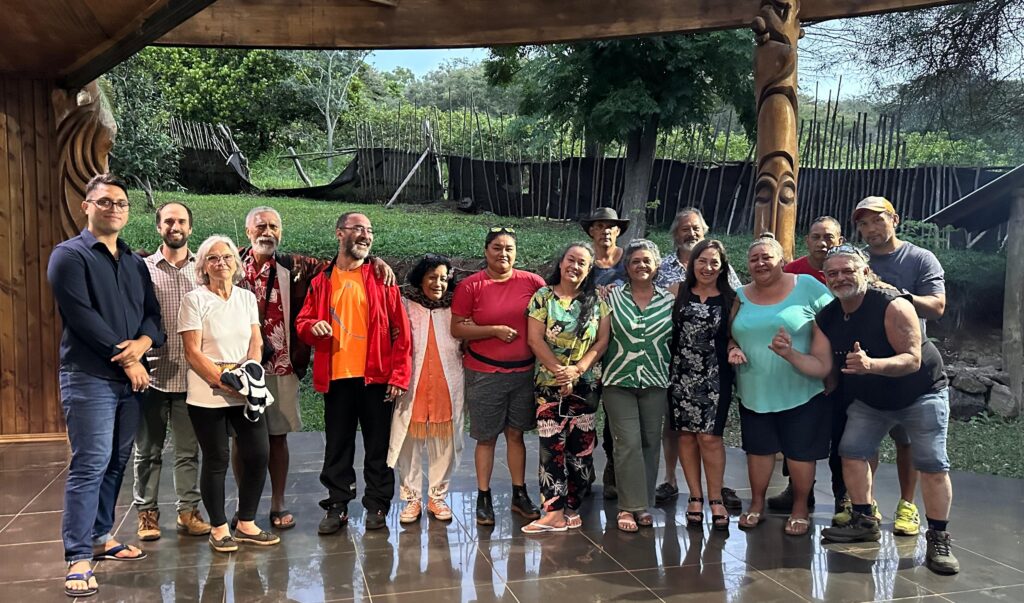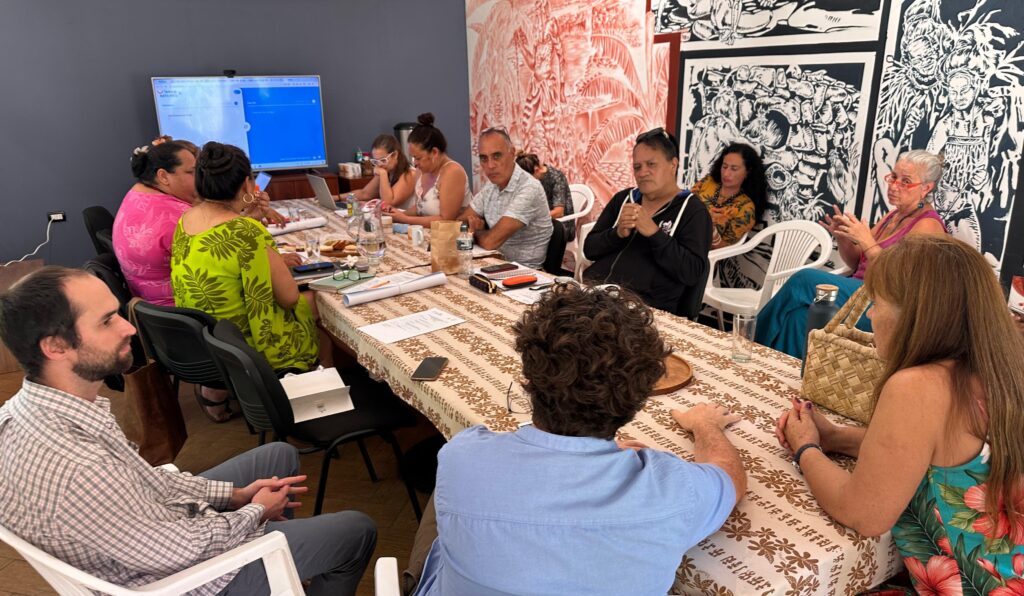From Rapa Nui to South America: How communities are claiming their languages online
On Rapa Nui, also known as Easter Island, the Rapa Nui language has long struggled to secure its place in the digital world. Despite having Internet access, communities such as those on remote islands and in parts of South America face an invisible barrier: language.
While connectivity is increasing, a significant digital divide persists. Over 7,000 languages are spoken worldwide, yet most are absent online, creating obstacles to knowledge, healthcare, and education for countless communities.
This linguistic exclusion is a subtle yet powerful form of digital colonization, limiting participation and sustaining a dominant narrative. However, the Centro Nacional de Inteligencia Artificial (CENIA) in Chile is changing that reality by working with indigenous institutions and Estudios Aplicados Antropología UC (EAA) to develop tools that bring these voices back online.
CENIA’s 2023 project “Internet for Everyone: Towards Removing the Language Barrier for Underrepresented Languages on the Internet” is actively working to dismantle language barriers, empowering communities to reclaim their linguistic heritage online and truly decolonize the digital sphere. Funded by Internet Society reserve funds and the Internet Society Foundation Building Opportunities/Leveraging Technologies (BOLT) grant program, this project was inspired by the reach of platforms like Google Translate.

Recognizing the limitations of existing translation tools, CENIA was determined to go further and embarked on an ambitious journey to enhance the largest open-source translation engine, now supporting 204 languages. They also developed a specialized online translation engine, meticulously designed for language inclusivity, in close collaboration with communities and local institutions to ensure that translations reflect true cultural authenticity. This engine was tested in communities such as Rapa Nui and parts of South America, directly addressing the real-world challenges faced by those whose languages, including Rapa Nui and Mapudungun, are underrepresented online.
“We are in crisis with the Rapa Nui language, so this project has been very useful to revitalize our language and our culture. It allows teachers, public officials and all people to make our language used daily,” says Jackeline Rapu, President of the Rapa Nui Language Academy ‘Ūmaŋa Hatu Re’o. The rollout of these tools has already had an impact in Rapa Nui and Mapuche communities, where community members can now independently access vital resources in their own language, ranging from healthcare to education.

The community also recognized the translator’s potential to strengthen daily language use, engage children and youth with their linguistic heritage, and serve as a bridge for non-community members to connect with Rapa Nui language and culture. It was identified as a valuable digital inclusion tool for accessing relevant online content, supporting administrative and educational tasks, and enriching the daily lives of speakers. “We have been working together for two years, and we want to continue working to make this tool available to the community and to everyone committed to revitalizing the language,“ added Jackeline Rapu.
The open-source nature of CENIA’s project is another pivotal contribution to decolonizing the Internet. By releasing the source code under an open license, the project provides a robust and adaptable codebase that serves as a springboard for similar initiatives aimed at other low-resource languages. This strategic decision sets the stage for global replication and accelerates the development of translation and communication tools for other marginalized languages. It creates a ripple effect of empowerment for future projects, fostering a collaborative ecosystem where language diversity can thrive online.
“This project is not just an academic effort, but a concrete tool to support the Rapa Nui community in revitalizing their language, beyond the common uses of AI such as image generation or process efficiency”, states Carlos Aspillaga from CENIA.

This project is not just about translation; it plays a vital role in preserving and actively revitalizing endangered languages by making them relevant and accessible online. By decolonizing the digital space, CENIA’s tools empower speakers of Rapa Nui, Mapudungun, and other languages to engage with the Internet on their own terms. As community members start to create more online content in their native languages, a new Internet is forming—one that speaks in many voices, not just the dominant ones.
“We have shown the translators to native speakers and people who are learning the language. We received feedback and comments from them, which will help us to continue improving the translator,” says Francisca del Valle, from Estudios Aplicados Antropología UC.
Ultimately, ‘Internet for Everyone’ stands as a testament to the power of human-centered technology and reflects the mission of the Internet Society and Internet Society Foundation to ensure an accessible, reliable, and safe Internet for all. It goes beyond bytes and algorithms; it aims to give communities a voice and ensure that the Internet truly serves everyone, regardless of their language.
The Internet Society is one of the founding members of the Coalition on Digital Impact (CODI), collaborating to make sure that every person can use the Internet in their own language. By prioritizing linguistic diversity and supporting community-led initiatives, we can collectively strive for an Internet that is not only inclusive but also culturally rich, vibrant, and genuinely decolonized, reflecting all the different languages and cultures in the world.

Learn more about:
